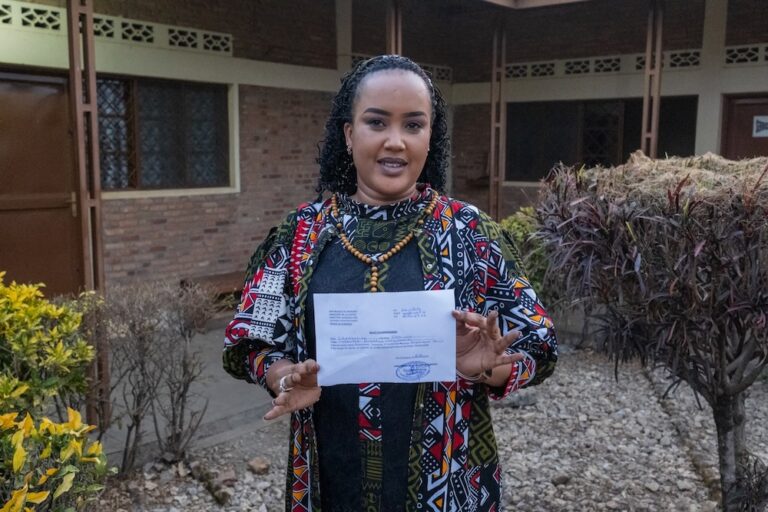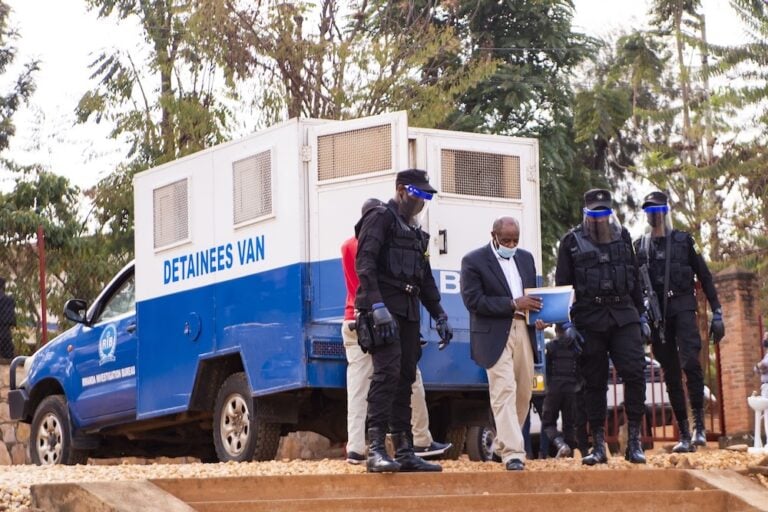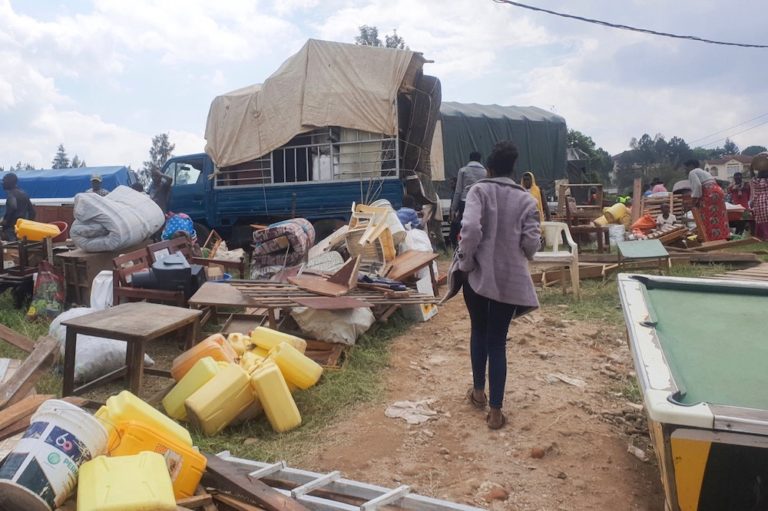(RSF/IFEX) – After visiting Rwanda from 30 September to 6 October 2005 and meeting with detained Belgian priest Guy Theunis, the former editor of the Rwandan magazine “Dialogue”, Reporters Without Borders insists that the charges against him were politically motivated and baseless and reiterates its call for his immediate release. The press freedom organisation also […]
(RSF/IFEX) – After visiting Rwanda from 30 September to 6 October 2005 and meeting with detained Belgian priest Guy Theunis, the former editor of the Rwandan magazine “Dialogue”, Reporters Without Borders insists that the charges against him were politically motivated and baseless and reiterates its call for his immediate release.
The press freedom organisation also reported that Father Theunis was cheerful and in good health, and the conditions in which he was being held in Kigali’s main prison were acceptable.
“The first night, which I spent in a police station, was very tough, but since then I have been treated well,” Theunis told Reporters Without Borders. “I got a good welcome from the other detainees and I receive regular visits from the Belgian embassy and members of the Company of Missionaries of Africa, who are based in Kigali.”
The press freedom organisation said it would soon issue a detailed report on the case and, in particular, the charges that were brought against him at a gacaca (popular tribunal) on 11 September, namely “inciting ethnic hate” in the run-up to the Rwandan genocide of 1994 and “negationism,” that is to say, denying that the genocide ever took place.
After speaking to the main prosecution witnesses, gathering many other statements and getting copies of relevant documents, Reporters Without Borders said it was in a position to confirm that there were absolutely no grounds for arresting Theunis.
“This case is political,” the organisation said. “No prior investigation appears to have been carried out by the judicial authorities. It seems that the Rwandan prosecutor’s office signed an arrest warrant under pressure from certain leaders of the ruling Rwandan Patriotic Front, some of whom testified against Father Theunis during his appearance before the popular tribunal.”
“Furthermore,” Reporters Without Borders added, “the Rwandan government’s promise to extradite him to Belgium on condition that he is tried in Brussels is unacceptable as the evidence presented by the Rwandan judicial authorities does not justify bringing him to trial.”
When Theunis appeared before a gacaca in the Rugenge district of Kigali on 11 September, he was classified as a category one suspect accused of high-level responsibility in the 1994 genocide and was immediately transferred to Kigali prison.
He is alleged to have incited hate and ethnic divisions by quoting passages from the extremist newspaper “Kangura”. But his sole reason for quoting “Kangura” was to condemn hate and intolerance.
Now aged 60 and no longer a resident of Rwanda, he was arrested on 6 September during a stopover in Kigali airport on his way back to Belgium after attending a peace and reconciliation seminar in the neighbouring eastern part of the Democratic Republic of Congo.
A member of the Company of Missionaries of Africa, Theunis is the first foreigner to appear before one of the gacacas, which were created to try the hundreds of thousands of individuals still being held on suspicion of involvement in the genocide.


